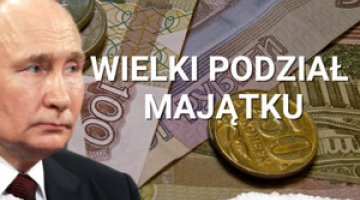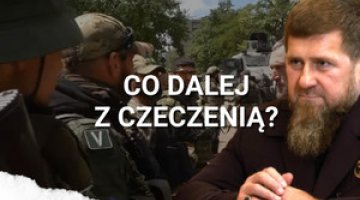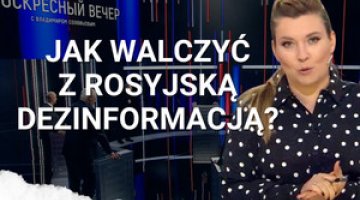Russia after the elections: pressure from below forces the government to change its tactics
Under the influence of this social mobilisation, a change in the government’s attitudes can be observed, including giving up simply ignoring the protests or using violent means to silence them. This may be a sign that before the upcoming presidential election, the ruling elite is coming to realise that the tactics it adopted before these elections proved ineffective, and that they need anew one which will neutralise the discontent at Putin’s return and allow him to be re-elected in a credible manner. The new tactic may be focused on demonstrating ‘renewal’ within the ruling camp, although it cannot be ruled out that pressure will be exerted on the leaders of the protest, or destabilisation will be inspired, to indicate that Putin is the only guarantee of stability. And although the strategy of the ruling camp remains unchanged – to maintain the stability of government, without making any real concessions to opponents – recent events have shown that Putin’s position within the ruling camp has been weakened. Putin, who was the elite’s leader, who guaranteed them legitimacy and stable rule, is now the focus of the rising social discontent, and some of his decisions have brought negative consequences to the ruling elite.
The ‘indignant’: their potential and limitations
On 10 December, protests were held in several Russian cities against fraud during the parliamentary elections of 4 December. The largest rally in central Moscow was attended by between 25,000 (the Interior Ministry’s estimate) and 80,000 people (the organisers’ estimates). Protests in other cities were less numerous; apart from in St. Petersburg, where between five and ten thousand gathered, the numbers ranged from several hundred to several thousand people. Most of the protesters were young people, who count themselves as middle class or aspire to do so, for whom the Internet was the main tool for information and coordination.
The demonstrations attracted people who had not participated in actions of a political nature over the last decade. What is more, apart from those who are actively protesting (who now number up to about 100,000), the social base of their supporters is quite broad. In Russia, there is deepening fatigue at the unchanging rule of Putin's elite (especially in view of Putin’s planned return to the Kremlin for the next six to twelve years), as well as growing frustration at the arrogance of a government which communicates its decisions ‘top-down’. This public sentiment has manifested itself in the decline in opinion poll ratings for both Putin and his United Russia party, the ‘party of power’s weaker results in the recent elections, and increased emigration to the West by members of the middle class, who are frustrated at the limited prospects for development in Russia. Large-scale dissatisfaction is also apparent on the Internet, both in debates by avowed opponents of the government, as well as in declarations by those who are far removed from politics. Financial support for the opposition (albeit implicit) may be provided by representatives of the Russian business elite who are interested in reducing Putin’s dominance over the economy. Another factor in the mobilisation of the ‘discontented’ is the imminent presidential election (4 March 2012). The opposition has called another mass demonstration in Moscow for 24 December, as well as the organisation of a ‘round table’ within which post-election scenarios are to be worked out. Preparations to monitor the presidential elections are being made (social committees are being established to coordinate the work of the observers); and a campaign under the slogan ‘Any candidate but Putin’, analogous to that for the parliamentary elections, is continuing.
A limitation to the potential of the ‘indignant’ may prove to be their major internal differences – their numbers include democrats, nationalists, anarchists, non-political persons, and so on. Their expectations of the government are frequently conflicting, and so it will be a big challenge to formulate a positive program and coordinate action at a later stage of the protests. This diversity may be exploited by the government, which could take action aimed at splitting the opposition. Moreover, the protests do not have any single clear-cut leader (although there are a few charismatic figures among them). Another limitation is their weak financial and organisational backing, in comparison with the government.
The government’s changing tactics under pressure from below
The government’s attitude to the 10 December protests and the persistent opposition is changing; they have given up their current tactic of ignoring the discontent or responding to it by force. Saturday's protests went off peacefully (the police behaved calmly, in contrast to their conduct during the opposition’s previous demonstrations), and for the first time state television reported the demonstrations in broad terms (although they censored the anti-Putin slogans delivered during the rallies).
This change may indicate the ruling elite’s growing awareness that the policy they have been employing over the years has now lost its effectiveness. So far, to maintain social order, the government has taken a combination of financial measures (regular pay increases for employees of the extensive public sector, pensioners, employees of the ministries of force, etc.) with those based on propaganda (creating a positive image in the state-controlled popular media). Its political opponents have been relatively few in number; the repressive methods used against them have proved effective (no permits have been granted for opposition gatherings, and those which do occur have been brutally broken up; participants are arrested), as has propaganda (discrediting the protests’ leaders). Today the situation has changed – the ‘discontented’ have become too numerous, and the boundary between the marginal opposition ‘outside the system’ and the many groups of the ‘apolitical dissatisfied’ has begun to blur. The potential impact of government propaganda has also been significantly reduced; for a third of the population (its most active part), the Internet has become an alternative to pro-Kremlin television, and the censorship in the traditional media has raised even more discontent.
The leadership’s strategy will remain unchanged – the continued, stable exercise of political power, bringing the elite great financial benefits. But in the face of public discontent on the eve of the presidential elections, in which Vladimir Putin is running, the government is facing with the need to choose tactics which can neutralise the public’s dissatisfaction and improve the image of the leader. The course of events may suggest that the new tactics’ main element will be an attempt to demonstrate the ‘renewal’ of the ruling camp, including personnel changes in the state administration, and a limited liberalisation of the government. The resignations of many unpopular politicians are likely in this context, as is the pretence of competition on the political scene, including the emergence of ‘liberal’ groups and politicians acting in concert with the ruling elite. One of these groups could become a new liberal party, as has been announced by the former Finance Minister Aleksei Kudrin (a long-time, trusted associate of Putin). The involvement in the presidential election of pro-government billionaire Mikhail Prokhorov may be a similar move. After the presidential election, the appointment of a government led by a liberal politician (such as Kudrin) seems likely. In an extreme case, if the social discontent persists or grows, the government may even allow a second round of presidential elections (and the abandonment of efforts to ensure that Putin wins in the first round), to defuse discontent.
Such ‘liberal’ tactics are likely to be combined with elements of repression, although not so much by the use of open force, so much as instructing the special services to deepen divisions among the protesters and discrediting their leaders in the eyes of other participants. On the other hand, the government may play the nationalist card, for example, by provoking riots among radical nationalist groups to demonstrate that Putin and his team are the only effective alternative in Russia to the gathering power of a ‘brown threat’.
Although the government camp is primarily treating these operations as a PR exercise, and is unwilling to make any deeper concessions to its opponents, all of these scenarios could have effects damaging to the government, especially in the longer term. The so-called ‘liberalisation’ option (simulating ‘renewal’, allowing limited competition) may relieve the current discontent, but it will deepen the erosion of the current leadership team’s monopoly of power, and may result in the formal creation of a political alternative to the government. On the other hand, the use of force may simply strengthen and consolidate the opposition, and exploiting the nationalist camps would run the risk of those same groups (whose strength has been growing over the last year) running out of control.
Putin – guarantor or dead-weight?
The ineffectiveness of the tactics which the government adopted before the elections is shown in the poorer results obtained by United Russia, and above all by the open social discontent accompanying the parliamentary campaign and Putin’s plans for re-election. These developments have shown that the decisions previously taken – giving up the ‘tandem’ formula and Medvedev’s re-election, the return of Putin – have had different effects from those intended. The impression of the elite seamlessly achieving its political objectives was also undermined by the chaos of the decision-making process before the parliamentary elections – Putin stepping down from leading United Russia into the elections; putting Medvedev, who was unpopular in the party itself, at the head of its campaign – which deepened the confusion and disorder within the ranks of the party.
The negative effects of the government’s policy have weakened the position of the main decision maker, Vladimir Putin, not only among the public but also within the ruling elite. So far, Putin had been the guarantor of the system of government he himself created, guaranteeing its strong political legitimacy (through his unchallenged victory in the elections) and the stability of rule (through the creation of effective political strategies). Now his political legitimacy has been undermined, and he serves as the focus of active social discontent. Another factor that could weaken his position is the prospect of a second wave of economic crisis, for which Russia is much less well prepared than it was a few years ago. In the short term (before the upcoming presidential elections) the ruling camp will pull together in its attempt to neutralise the social discontent and ensure a convincing victory for Putin. However, in the longer run ferment within the elite and discussions about the need for change may intensify, including the discussions on making a generational shift, especially regarding public policy positions.





